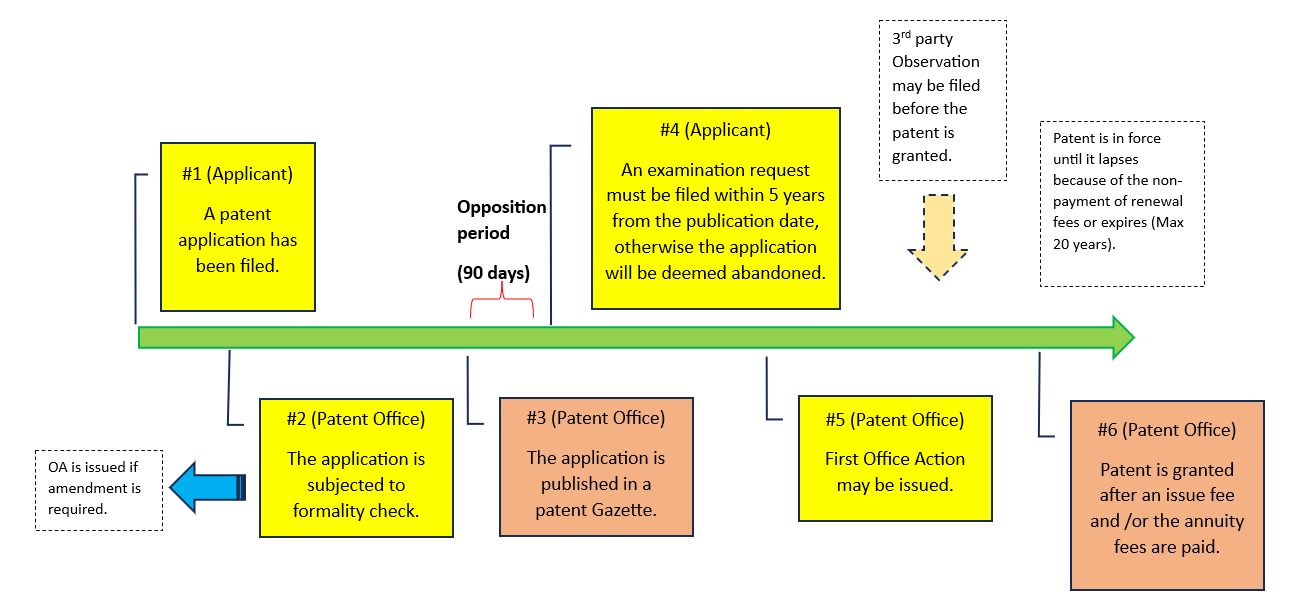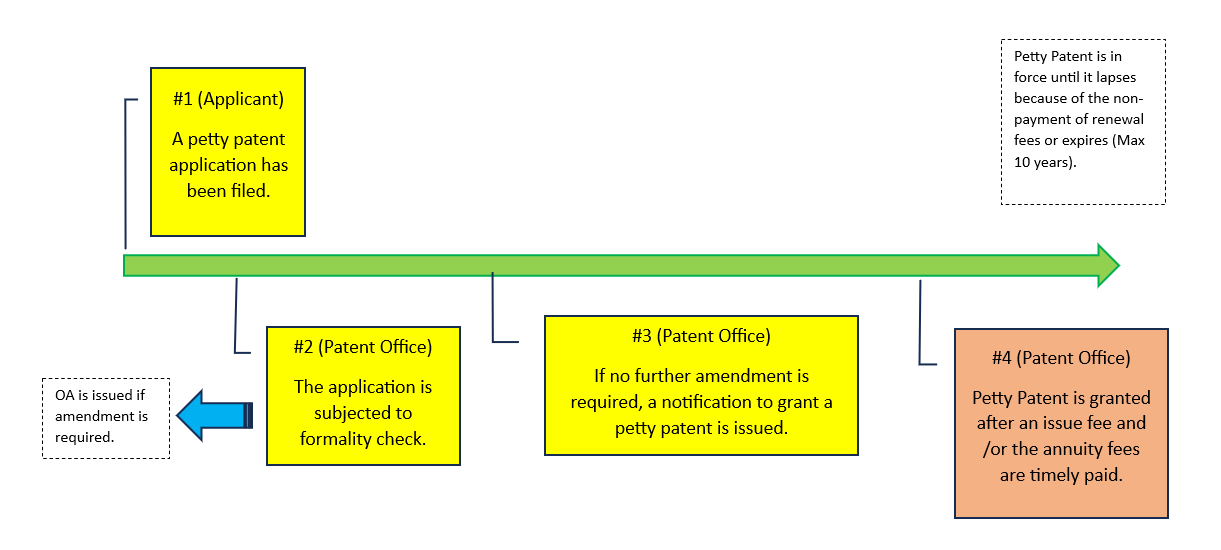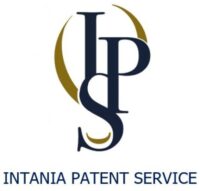Filing a Patent/Petty Patent Application in Thailand
Patent
Under the Thai Patent law, patent will be granted for an invention that possesses novelty, inventiveness and industrial applicability. After being granted, the patent will be in effect for a maximum period of 20 years from the filing date of the application, provided that annuity fee is timely paid. Timeline from filing a patent application to a patent being granted is shown below.

After filing a patent application, it will be examined for formality and then be published in a monthly gazette for 90 days. If there is no opposition occur during said period, the applicant can proceed with filing a request for examination within five years from the publication date. The applicant is deemed to abandon his/her application if the applicant fails to file a request for examination within the prescribed period.
Opposition (Pre-grant opposition system)
Within the 90-day publication period, anyone can file an opposition against the application on the grounds, for example, lack of novelty, lack of inventive step, lack of right to apply for a patent, etc. The opposition may be filed anonymously. It is common to take at least two years to complete the opposition process.
After the opposition period has lapsed, anyone may file documents/ evidence related to assessment of novelty / inventiveness of the underlying invention (so called a third-party observation) with the Thai Patent Office in an attempt to inform the Examiner in charge the existing of prior art documents. However, the Examiner may or may not take the documents into consideration since there is no such stipulation in the present Thai patent law.
Examination of a Patent Application
The examination results from six major patent offices, i.e. USPTO, EPO, JPO, SIPO (China Patent Office), KIPO (Korean Intellectual Property Office), and Australia Patent Office are usually accepted.
Some other regional cooperation or bi-lateral cooperation, such as ASPEC, and PPH (Patent Prosecution Highway) Pilot program between JPO and Thai DIP are also accepted.
Currently there is approximately 100 Thai examiners and normally it will take more than five years from filing date until a patent is granted
Petty Patent
Petty Patent (known as utility model in other country) is registered if the underlying invention is new and industrially applicable. The registered petty patent will be published after it has passed a formality check and an issue fee is paid.
Typically, it will take at least one year when a first Office action to be issued.
The maximum term of protection for a petty patent is 10 years.

Note
Generally a petty patent will be registered quicky for it is not required to be undergone a lengthy examination process like that of the patent application. This makes Petty patent a good choice for protecting a product having a sizable market value but with a short life cycle, perhaps a minor changed version of an already-existing product that need to be quickly launch to the market. Also one should be well aware that the petty patent right is pretty insecure as it is not yet examined by the Patent Office.
